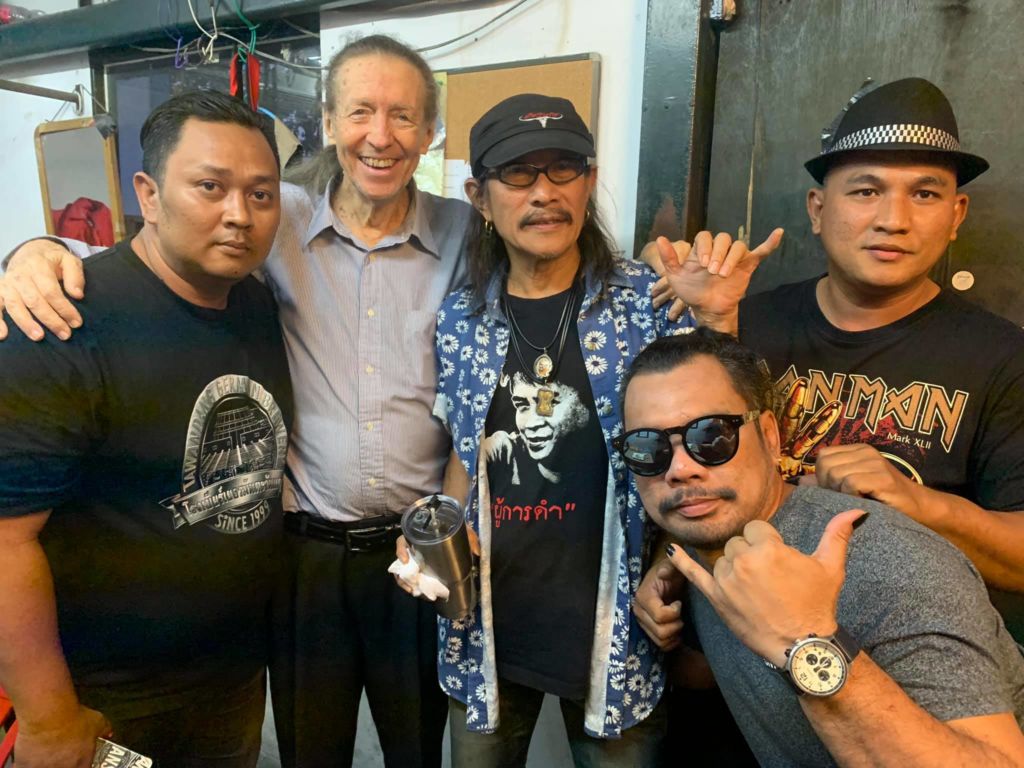Bruce Gaston, an American musician who found fame melding the musical traditions of his native and adopted cultures to become an acclaimed Thai musician in his own right, died Sunday after a bout with illness. He was 75.
One of the founding members of Fong Naam, a pioneering group which fused Western and Thai music, Gaston had been battling liver cancer for several years prior to his death Sunday at home, his family said this morning.
“He passed away Sunday morning with all of us holding his hand, by his side, at home,” said his son Theodior Gaston, a guitarist in bands such as Flure and Ghost Cat. “He had been unconscious since the day before … so it was like he was already sleeping.”
Gaston was born in Los Angeles in 1946. There he graduated from USC with degrees in philosophy and music.
What ultimately led him to Thailand, where he forged a legacy and in 2009 became the only non-Thai recipient of a Silpathorn Award, at first seemed a sacrifice. Rather than fight in Vietnam, Gaston won approval to serve his country another way, according to an Los Angeles Times profile, which meant giving up a career at home.
After originally journeying to Jamaica, he decided to bring his talents to teach music where the war was raging: Southeast Asia.
“If art is like a beacon, then I would go where that light doesn’t reach,” 21-year-old Gaston said of his decision to come to Thailand. He left the day after standing for his master’s recital at USC.
He became the first music teacher at Payap University Chiang Mai. There he learned Lanna folk music and wrote ChuChok, an avant-garde opera adapted from Jataka mythology, according to a bio written by one of his students.
It was also there that he was moved by a song called Shwedagong, which inspired him to seek its composer in Bangkok.

That led him to Boonyong Kethkong, who became his mentor in learning traditional Piphat music, which encompasses a broad range of music, knowledge of which is traded orally and committed to memory rather than the sheet.
A decade later, he and Boonyong founded Fong Naam with Jirapan Ansvananda. Over the next four decades, they performed live and recorded extensively, including original soundtracks and collaborations with music greats worldwide.
With Fong Naam, they hoped to inject new vigor into traditional music, which was fading from relevance.
“The idea was to promote Thai music, to westernize Thai instruments. Young generations were not familiar with this kind of scale, so the idea was how to bring Thai music closer to them,” 71-year-old Jirapan said Monday, adding that Gaston taught him things about being Thai.
Together, they bridged Thai and Western music, pioneering a form that has its spiritual successors in the likes of Nattapon Siangsukon and Chris Menist’s popularization and internationalization of mor lam music.
Gaston later passed his knowledge to students at Chulalongkorn University.
He is survived by his son Theodior, 38, and mother Sarapee Gaston.
Funeral services are at 6:30pm this evening at Wat That Thong, with cremation set for 5pm on Thursday.
Correction: An earlier version of this story misstated Gaston’s age as 74. He was 75. It also stated incorrectly that Theodior Gaston played guitar in the band Yellow Fang; he is in fact its producer.










